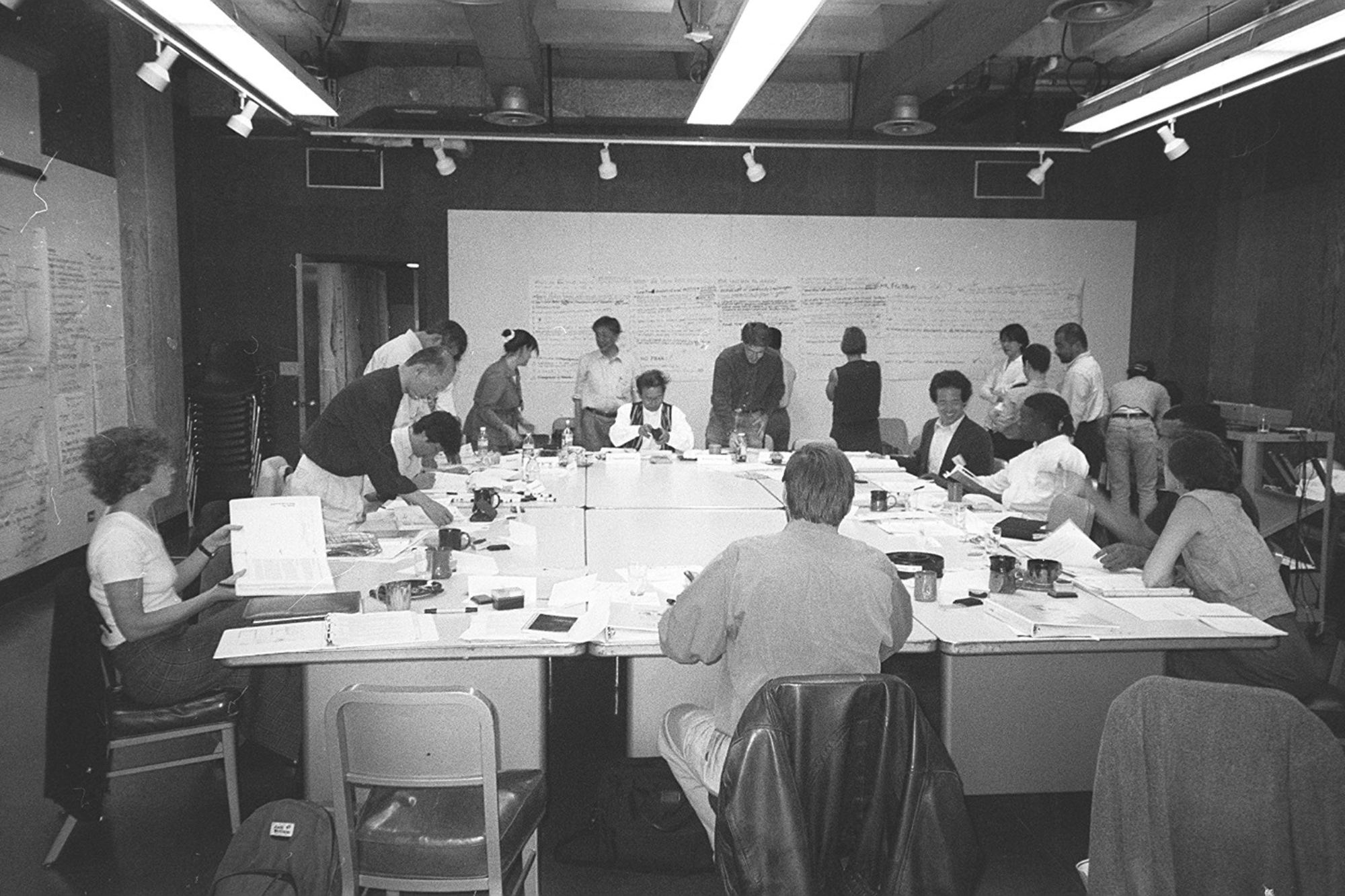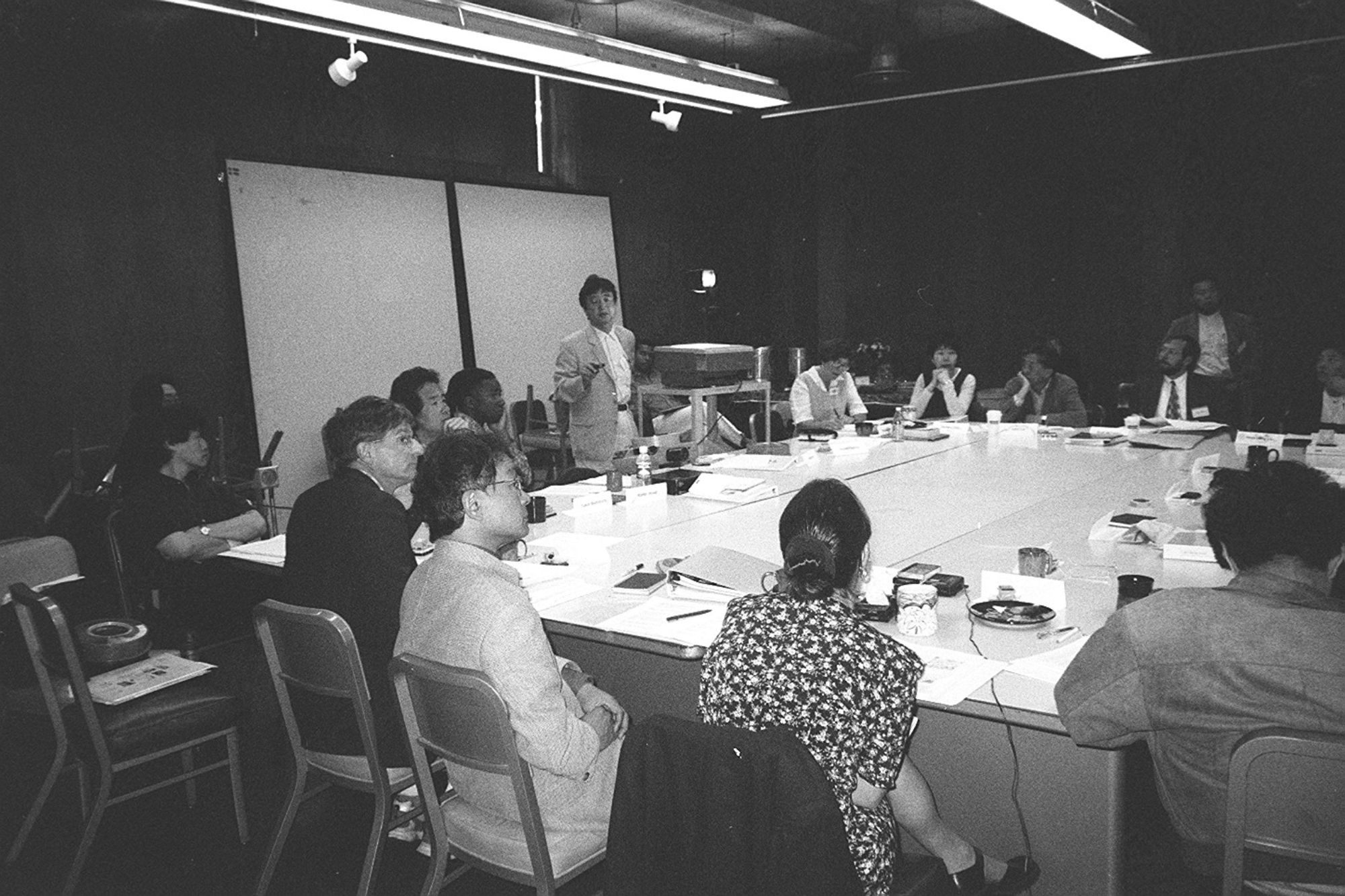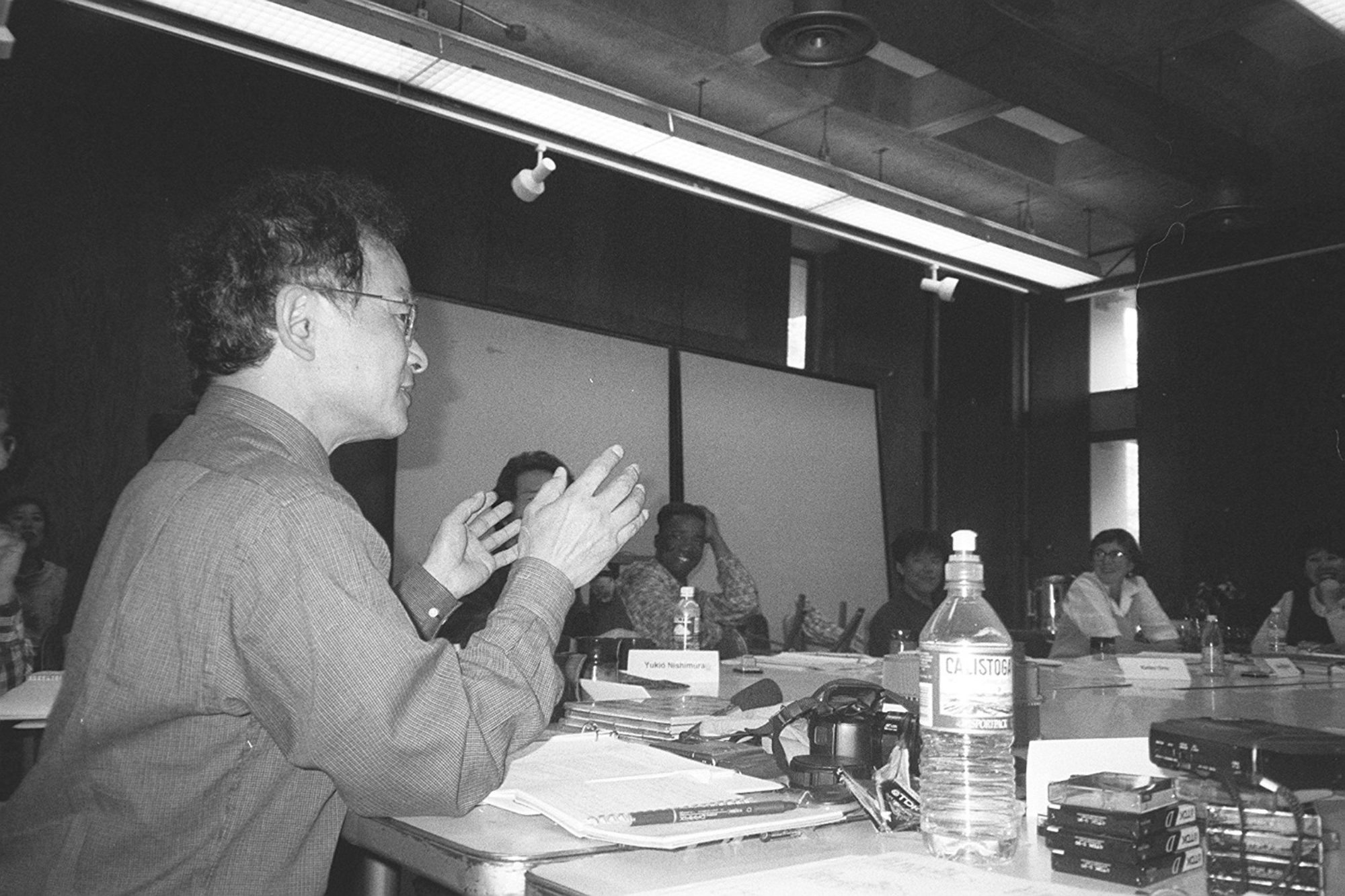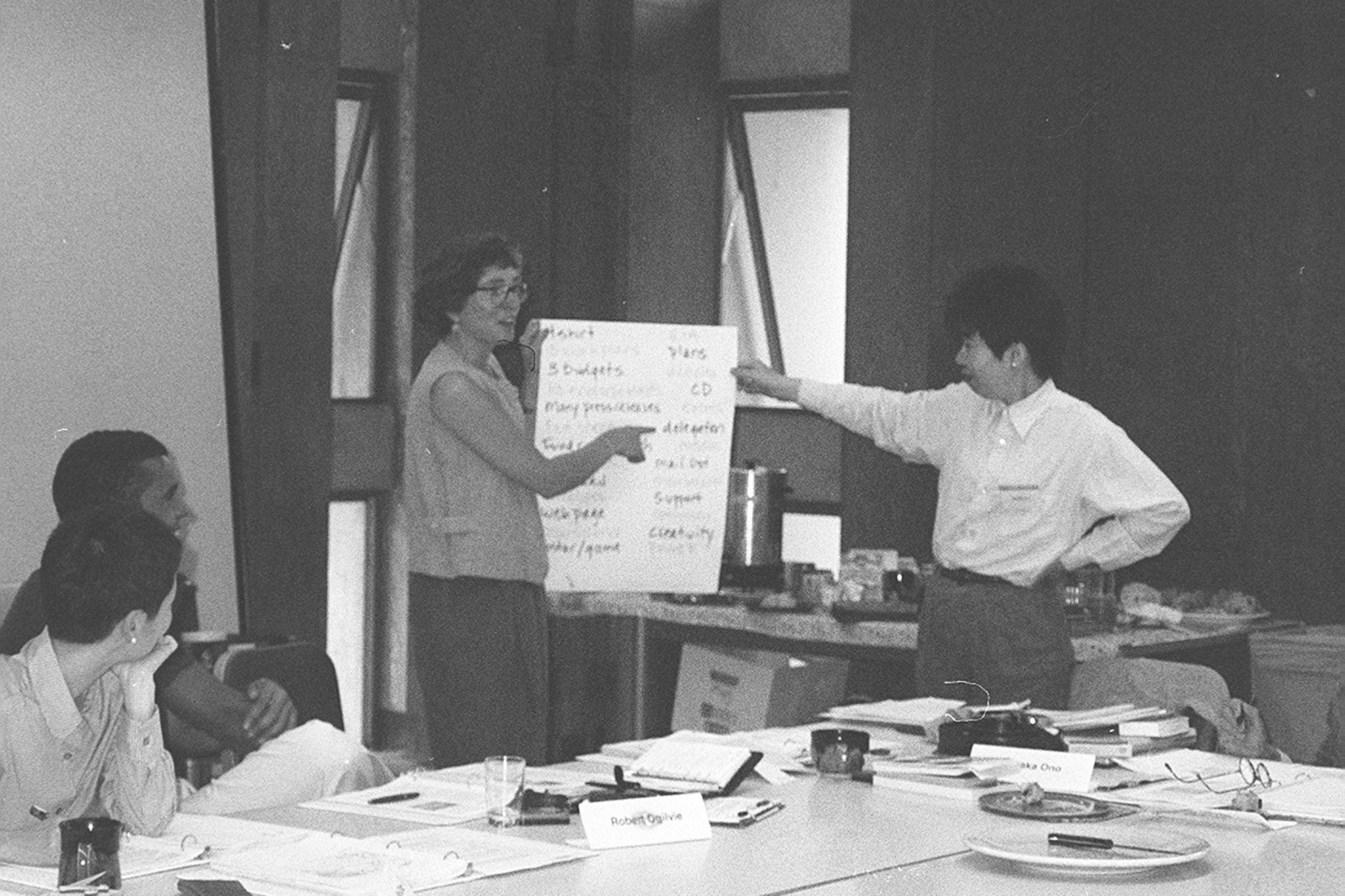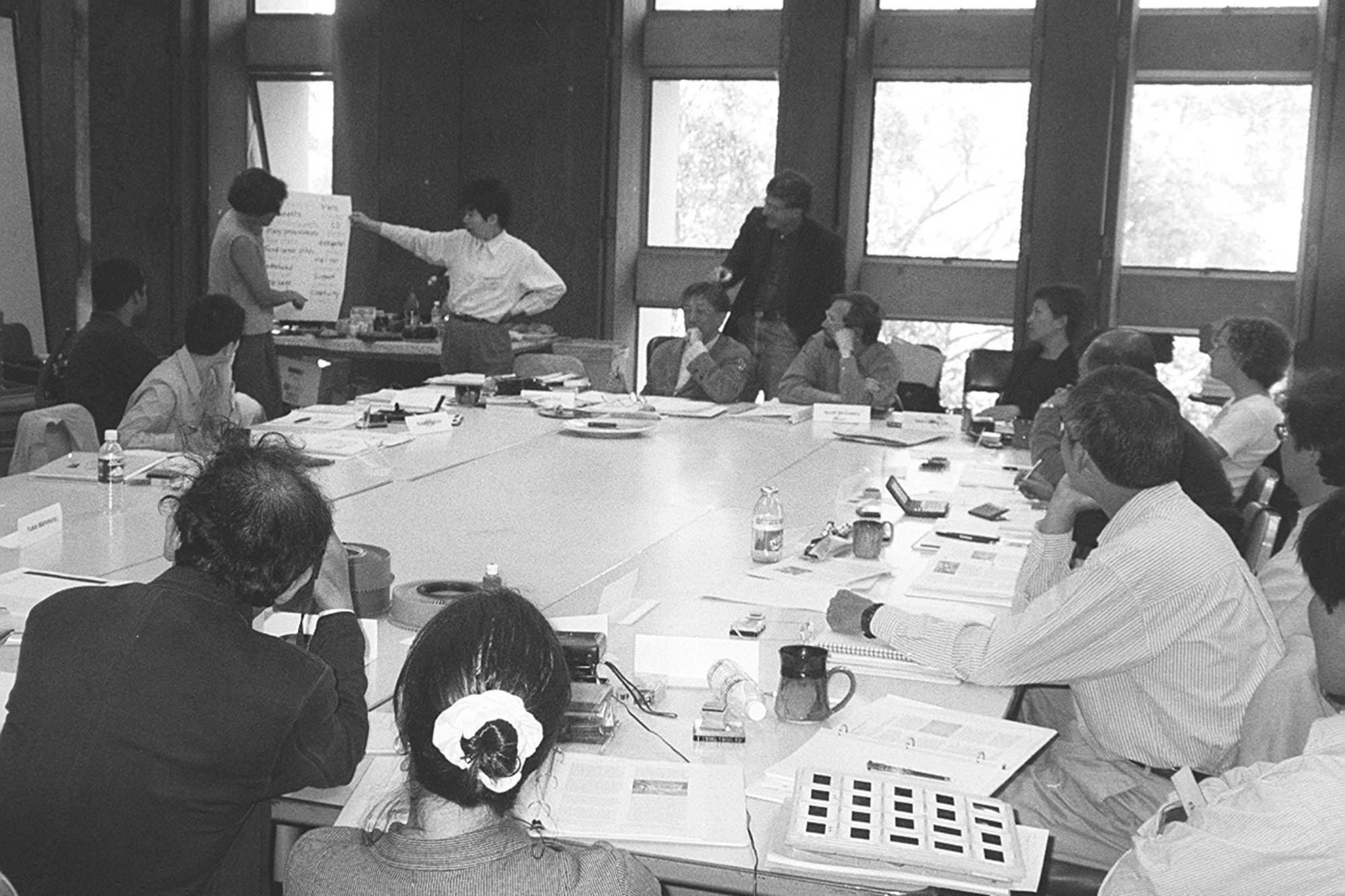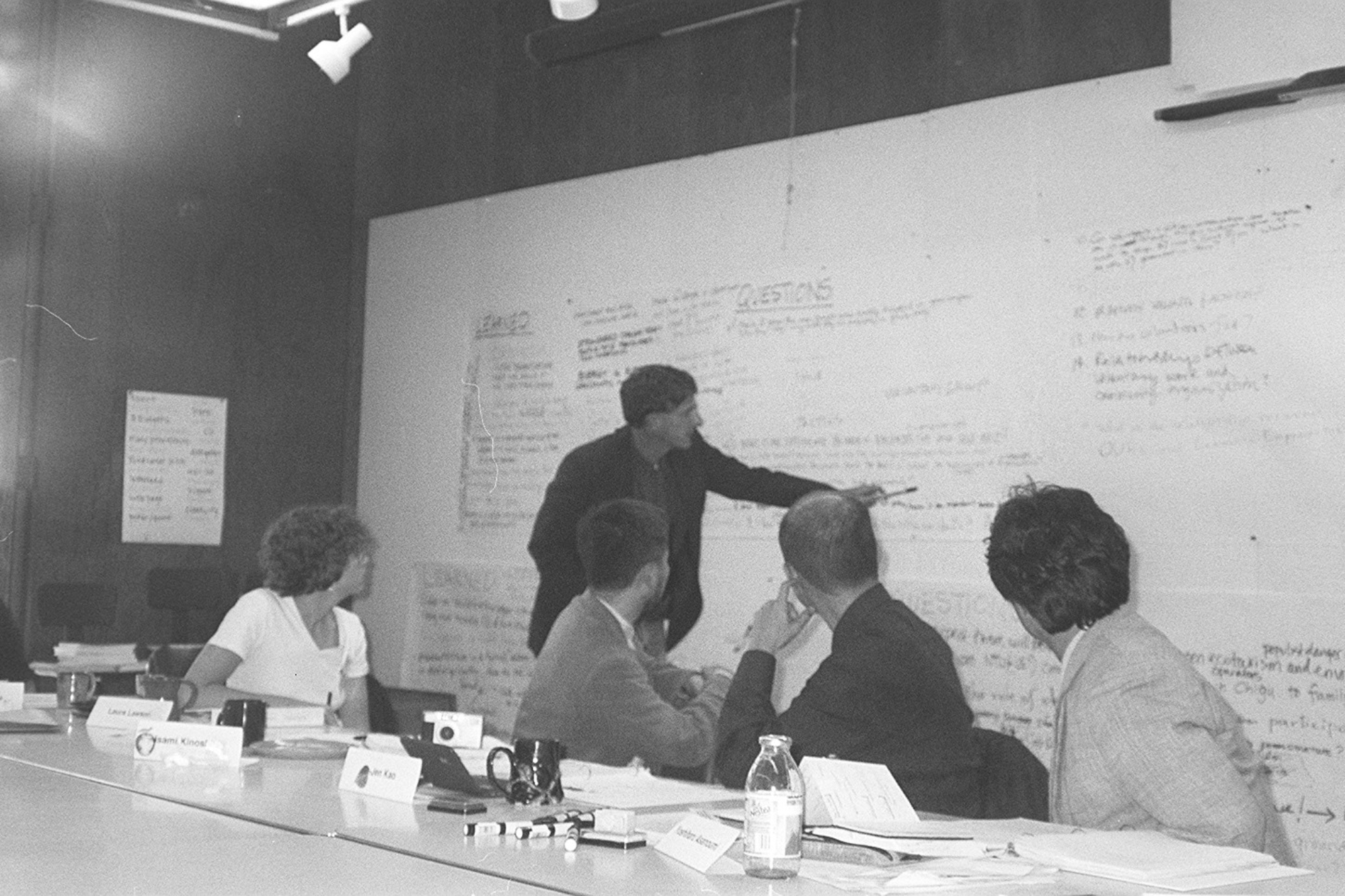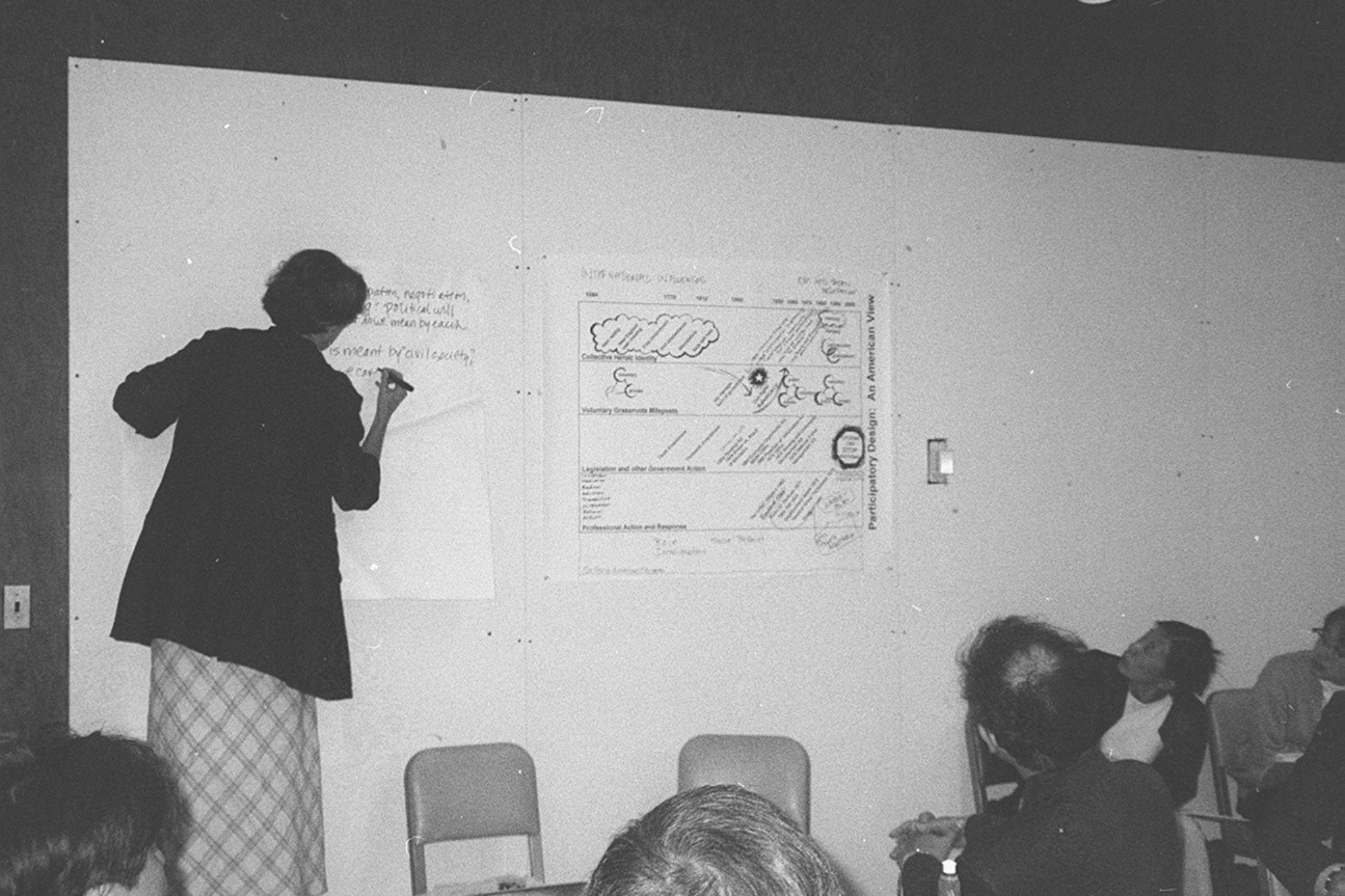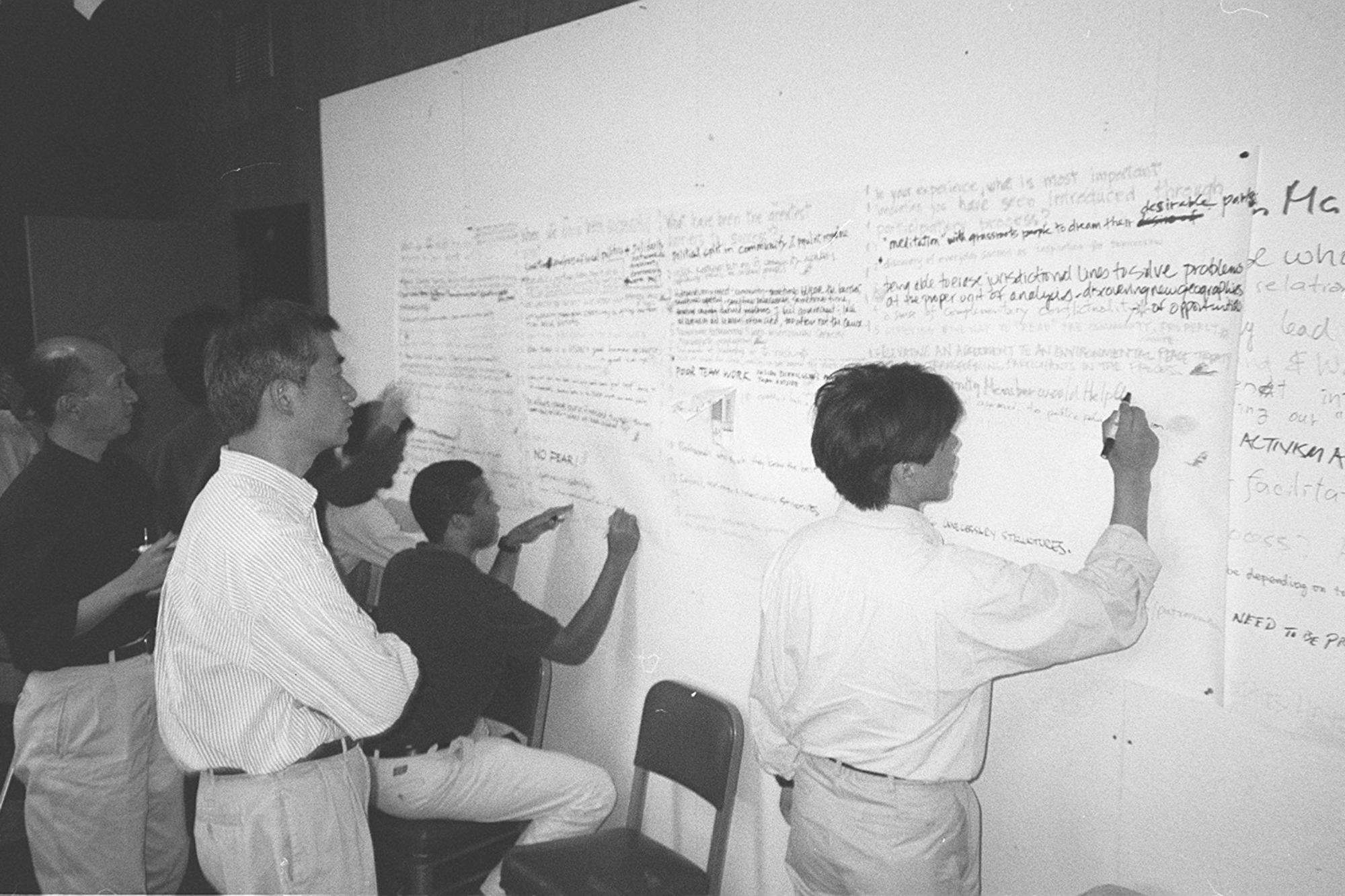Democratic Design in the Pacific Rim: The Inaugural Conference of the Pacific Rim Community Design Network, the University of California, Berkeley. May 20-23, 1998
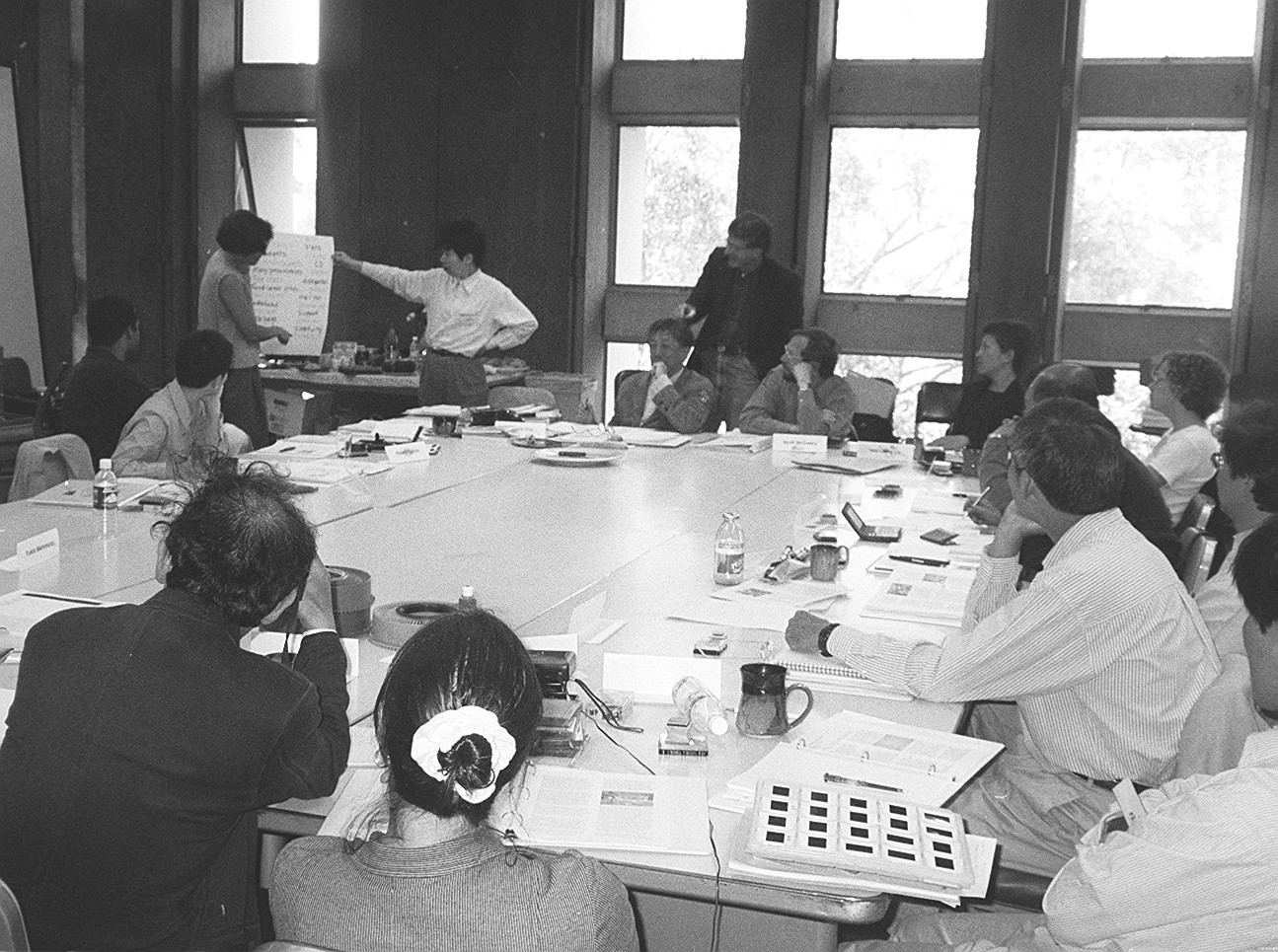
The inaugural working conference of the network was held on the campus of the University of California, Berkeley in Spring 1998. The 3-day event brought together twenty leading community design scholars/practitioners from Japan, Taiwan, and the United States to share their projects, experience, and knowledge in the growing practice of democratic design in the respective contexts. The organization of the conference began with the discussion of forming a small working group of professionals doing community design and grassroots planning in the Pacific Rim to share ideas about our work. Students at Berkeley founded HELP (Human Exchange for Local Participatory Planning) to spur the discussion to action. The 3-day conference marked the first time that the professionals from the three countries were able to share, compare notes, debate, and learn from each other’s experiences and perspectives. The enriching and exhilarating exchange formed the foundation for establishing the Pacific Rim Community Design Network.
Organizer: Randolph T. Hester, Jr., University of California, Berkeley
